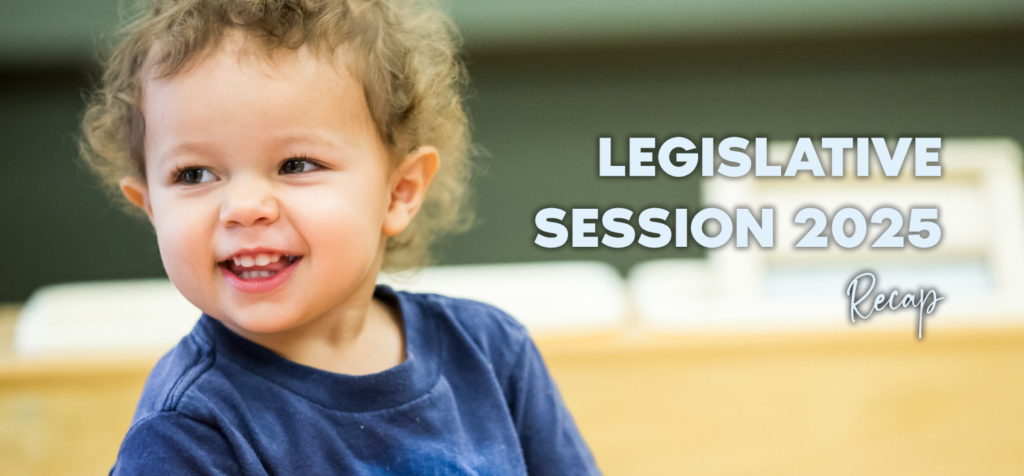
May 29, 2025
Gary Advocacy’s 2025 Legislative Recap
Policy Progress, The Power of Partnership & A Few Political Plot Twists
By Reilly Pharo Carter
As the dust settles on the 2025 Colorado legislative session, we’re proud to report major wins for Colorado kids and families.
Three of our four priority bills successfully passed both chambers and have now either been signed or are awaiting the Governor’s signature. While one key effort fell short, the progress made this session reaffirms the power of dreaming big and taking action.
Without question, these policies would not exist if it weren’t for the incredible partners who developed concepts, pushed our thinking, stood alongside us, and navigated complex political terrain in order to advance the work. We are grateful for the partnership of so many incredible advocates, individuals, and state agencies who we were able to work alongside this year.
Here’s a closer look at the wins, lessons and momentum we’re carrying into the future.
Big Win
Senate Bill 167
$340 Million in Community Investing, Including $150M Investment in Public Educator Homeownership

Senate Bill 167 unlocks 20 percent of the state’s $1.7B Public School Permanent Fund for community investment, with a spotlight on housing for teachers. It creates the Educator First Home Ownership Program, a down payment shared appreciation model inspired by a Gary-incubated venture known as the Dearfield Fund.
Senate Bill 167 marks the largest state investment in educator housing in Colorado history.
Beyond the policy itself, SB167 demonstrates how public funds can drive community impact without compromising fiscal responsibility, and it opens new doors (both literally and figuratively) for public school employees across the state.Want to dive deeper? Check out this fact sheet and explainer created by our team here at Gary.
Employee Ownership Gets a Boost
House Bill 1021
Nation’s First Capital Gains Subtraction for Business Conversions

House Bill 1021 offers a capital gains subtraction to business owners who choose to convert at least 20 percent of their business to a broad-based employee ownership structure.
As more and more business owners retire and ownership changes hands, we have an opportunity to intentionally embed employee ownership and wealth-building opportunities for workers in these transitions. This can be done gradually, as a part of a succession plan to 100% employee ownership or as a part of a traditional sale transaction at retirement.
Research consistently shows that employee ownership models positively impact employee satisfaction, retention and company performance — those models include Employee Stock Ownership Plans (ESOPs), worker cooperatives and Employee Ownership Trusts (EOTs). By effectively increasing after-tax returns for the business seller compared to a conventional sale, this bill aims to incentivize both buyers and sellers to integrate employee ownership into these sale transactions — both supporting resilient local economies and helping workers share in the value that they help to create. We’ve seen these mutual benefits firsthand at two local companies — Apex Plumbing and StoneAge Inc. — both of which are highlighted in a new short film about the progress employee ownership is making in Colorado.
Small, Crucial Adjustment
House Bill 1335
A Balanced Approach to Protecting the Family Affordability Tax Credit

House Bill 1335 made a small but crucial adjustment to the Family Affordability Tax Credit (FATC) and Earned Income Tax Credit expansion. Originally passed in 2024, FATC is already showing promise to deliver the largest poverty reduction in the country, according to new analysis from Columbia’s Poverty Center. It’s rare in the policy world to be able to make causal statements, but we have clear evidence that as a result of our investments in Colorado families through the Child Tax Credit, Earned Income Tax Credit, and the Family Affordability Tax Credit we are projected to move into first place as the state with the lowest child poverty rate in the nation.
While our commitment to this deeply impactful policy remains steadfast, it was also critical that we do so in a fiscally responsible manner and not put undue pressure on the state’s General Fund. When state economists raised concerns about potential economic downturns affecting FATC’s future, our team at Gary helped propose a revision that keeps the policy robust and fiscally responsible.
FATC is fully funded next year, meaning that when families file their taxes in the spring of 2026 they can anticipate getting the full tax credit.
The One that Got Away
House Bill 1169
YIGBY Falls Short in Senate
We’d be remiss not to acknowledge the disappointing fall of House Bill 1169, affectionately known as YIGBY (Yes In God’s Backyard). This policy aimed to unlock land owned by religious organizations and school districts for residential development, which is especially needed as Colorado grapples with a deepening housing crisis.
Despite broad support, the YIGBY fell victim to end-of-session political negotiations and didn’t make it to a final Senate vote. While we’re disappointed, we’re not discouraged. The coalition behind YIGBY remains strong — some of whom are now pursuing a similar policy in the City of Lakewood — and we’ll keep pushing forward with the same urgency and resolve in sessions to come.
Looking Ahead
Every policy win this session reflects the deep collaboration, creativity and commitment across teams here at Gary as well as with the many partners who banded together behind these bills. We are grateful to the partners who pushed our thinking, strengthened the policy, and fought tooth and nail to bring these policies to life. From industry-changing housing models to pioneering economic inclusion tools, the last five months demonstrated once again what’s possible when policy aligns with purpose and urgency.
We’re grateful to be in this work with you all, and we’re already dreaming big for what comes next.
